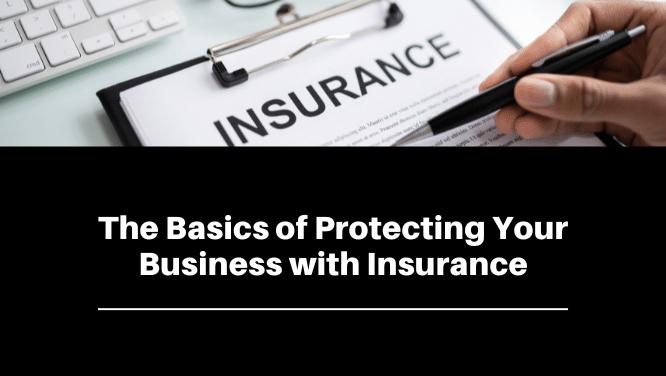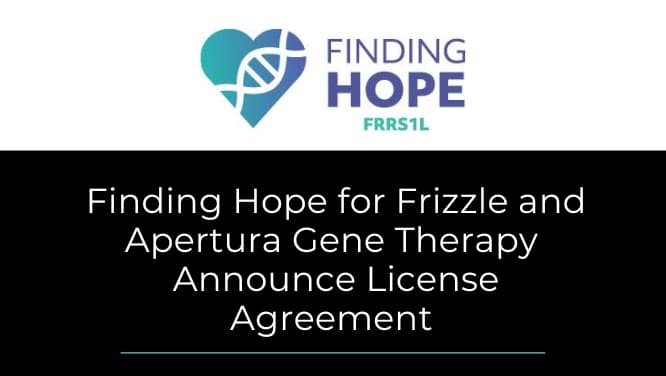The Basics of Protecting Your Business With Insurance

- Matt McKinney
- |
- January 30, 2024
In the unpredictable world of business, there is one constant and unwelcome companion lurking in the shadows: risk. We find risk anywhere and everywhere in a business environment: research and development, personnel matters, physical operations, customer relationships, data and security, and many other facets of running a business. Despite a company’s best intentions and its implementation of proactive steps for risk mitigation, mistakes by employees occur, third-party actors cause harm, natural disasters destroy property, and unintentional accidents still cause damage. Because these risks occasionally turn into actual loss and damage, companies of all sizes should carry insurance to provide a safety net when the unexpected occurs.
Even the leanest startup, operating on a shoestring budget, should have some insurance coverage. After all, carrying insurance not only protects the company’s assets but it is also an essential component of any overall risk mitigation strategy to help safeguard the company’s future.
In this article, we provide an overview of the most common insurance coverages, and the risks they are designed to cover.
- Workers’ Compensation Insurance
Workers’ compensation insurance covers an employee that suffers an injury during the employee’s scope of employment. Generally, workers’ compensation insurance will provide medical and lost wage benefits to the injured employee, regardless of fault or cause. If you have W-2 employees on your payroll, even if it’s just a small team gathered in a garage full of second-hand furniture, you are likely required by law to carry workers’ compensation insurance. In Colorado, employers with one or more employees are required to carry workers’ compensation insurance, subject to some rather narrow exceptions. Workers’ compensation requirements vary by state, so be sure to review the requirements of any states in which you have employees.
- Commercial General Liability Insurance (CGL)
Commercial general liability insurance exists to shield a business from bodily or personal injury or property damage suffered by a third party arising from the business’s premises or business operations. Examples of damage or loss covered by a CGL policy include a slip and fall injury on your premises, or damage to a client’s computer caused by your employee. CGL polices generally cover advertising injuries and libel – public statements that are untrue or advertisements that are misleading and cause harm. CGL policies are limited to damages or loss caused by non-professional negligence (damage caused by professional negligence would be covered by Errors and Omissions coverage, see below). No matter how streamlined your operation, an unexpected stumble on your stairs by a vendor or an unintentional product mishap could cause harm to a third party. General liability insurance steps in to ensure a business is not emptying its pockets to settle a claim.
- First-Party Property Insurance
First-party property insurance, commonly known as property insurance, protects a company’s physical assets, such as buildings, equipment, and inventory. Whether the company owns or rents real property is irrelevant. This coverage is to protect physical property; rarely do these policies cover digital assets such as data or cryptocurrency. In the event of damage or loss due to fire, theft, vandalism, or natural disasters, this coverage helps businesses recoup the cost of repairing or replacing damaged property. Some policies will include business interruption coverage, too.
- Directors and Officers (D&O) Insurance
Directors and Officers insurance is crucial for protecting the personal assets of a company’s leaders. D&O provides coverage for legal costs and potential personal financial liability stemming from decisions made while managing the company. D&O insurance ensures that top executives can make critical decisions in the course of their relationship with the company without excessive personal risk. Note that D&O coverage does not cover the directors’ or officers’ intentional misconduct.
- Employment Practices Liability Insurance (EPLI)
EPLI safeguards companies when claims of workplace discrimination, harassment, wrongful termination, or other employment-related issues are brought against the company by a current or former employee. As employment laws become more complex, this insurance is essential to protect businesses from costly legal battles and reputational damage. EPLI is often provided by professional employer organizations (PEOs) as part of their service offerings.
- Cyber or Technology Errors & Omissions Insurance
In the digital age, virtually every business collects, stores, and processes personal information. Most businesses face risks posed by data breaches, whether caused by the business’s own personnel or a malicious outside actor. Cyber or technology E&O insurance provides protection against data breaches, hacking, and other technology-related errors. These policies generally cover the costs of notifying affected parties, investigating the breach, and potential legal liabilities arising from the breach or hack. The marketplace for cyber insurance is evolving; policies are getting more expensive as claims increase, and coverages vary wildly by carrier and policy. Businesses are advised to educate themselves on their data risk profile to ensure their cyber policy is rightsized for its risks.
- Errors & Omissions/Professional Liability Insurance (E&O)
E&O policies protect companies that provide professional services against claims of deficiencies or negligence in the performance of professional duties. Any business that uses judgment to provide advice, services, or recommendations should consider an E&O policy. E&O provides protection to professional services providers if a client or other third party alleges that the provider made a mistake in providing professional services or advice. If your company does not provide professional or consulting services, E&O coverage is likely not necessary.
- Crime Insurance
Crime insurance helps companies mitigate the financial impact of internal and external fraudulent activities. This coverage can include theft, forgery, embezzlement, and various other types of dishonest acts by employees or third parties, depending on the coverage. These policies can cover risks posed by social engineering scams, such as an email phishing campaign that fraudulently obtains banking information leading to an unauthorized wire of company funds. In short, this coverage acts as a safety net when unethical behavior threatens a company’s finances.
- Keyman Insurance
Keyman insurance, also known as key person insurance, is a type of life insurance taken out on key individuals within a company, such as founders, executives, or employees with unique skills. If a key individual passes away or becomes incapacitated, keyman insurance provides the company with funds to navigate the resulting financial challenges and ensure business continuity.
- Umbrella Policy
An umbrella policy is an overarching insurance policy that sits atop some of your existing coverage, providing an extra layer of protection in addition to other policies. Most commonly, umbrella policies will provide additional coverage for CGL and employer’s liability policies. In essence, it is a financial safety net that can catch you when liability claims or lawsuits exhaust your primary coverage.
- Business Owners Policy (BOP)
A business owners policy is simply a collection of two or more of the above policies neatly bundled by an insurance carrier for ease. Often, a BOP will contain Commercial General Liability, First-Party Property, and Crime policies. Carriers offer a bundle of these policies as a convenience to customers.
Use Insurance as Your Trusty Sidekick
In business, where uncertainty is the norm, insurance is a tool used to mitigate business losses arising from particular risks. Insurance might not save the day in every scenario, but it can certainly help when the proverbial banana peel appears on your path. From workers’ compensation to commercial general liability insurance, these policies ensure your business has a fighting chance to survive and thrive, even in the face of unexpected calamities. While you cannot eliminate risk entirely, you can certainly manage risk and protect your business from some of the unexpected twists and turns of the entrepreneurial journey.
For guidance on how insurance can minimize risks to your business and to understand how customer or vendor contract terms interplay with your insurance policies, reach out to KO partner Matt McKinney at [email protected].




